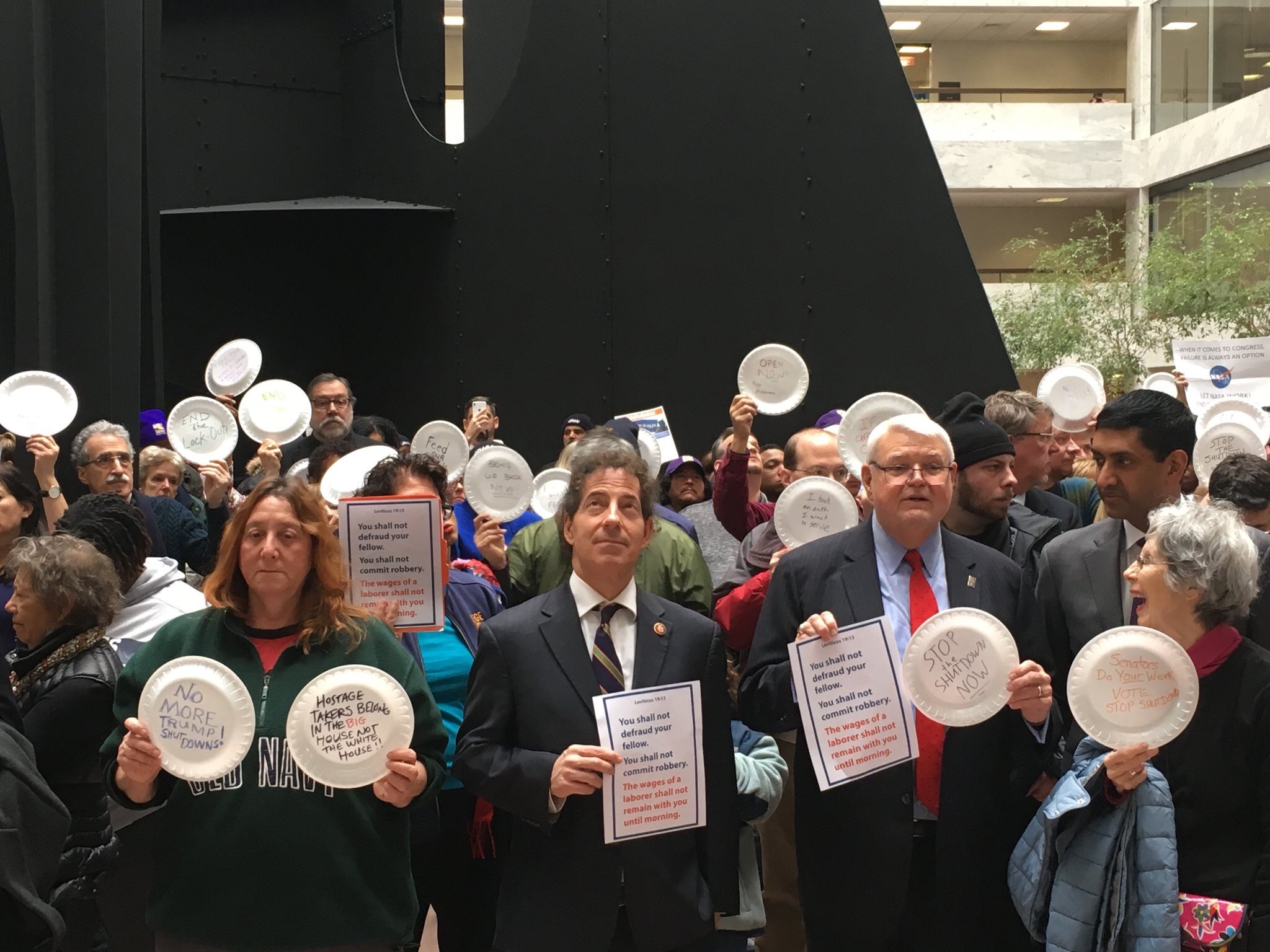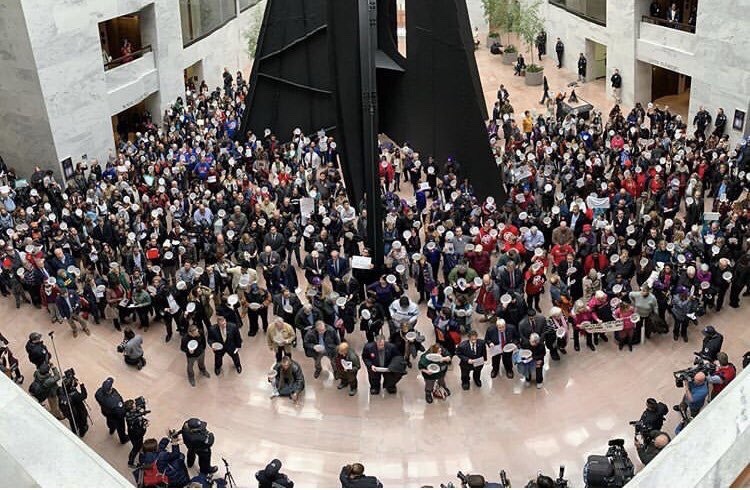Washington, DC — The AFL-CIO, the International Association of Machinists and Aerospace Workers (IAM), and the American Federation of Government Employees (AFGE) joined in a picket inside the Senate Hart Building Wednesday over the longest-ever government shutdown that they are blaming on the Trump administration. Hundreds of AFL-CIO and IAM union members filled the atrium of the Hart Senate Building in a demonstration against Senator Majority Leader Mitch McConnell for his refusal to bring to the Senate floor a vote to fund government operations.
They stood silently for 33 minutes, one minute for each day the government has been shut down, holding plates. Then they chanted, “We need paychecks, no more food banks!” and “We want to work!” before dozens led a protest walk to Senator McConnell’s office while several union leaders went inside to occupy it. There were 12 arrested outside McConnell’s office for trespassing, including several union leaders.

Senator McConnell’s part in the shutdown is choosing not to “consider any government funding bill the President will not sign.” This was the same tactic he took in February 2016, when refusing to bring to a vote then President Obama’s nomination of Merrick Garland for Supreme Court Justice.
The federal government shutdown is actually a partial shutdown but has furloughed 800,000 federal workers with another 200,000 federal union contractors also affected. Now in its fifth week, it has left the contractors without pay, benefits and no relief expected anytime soon.
The shutdown began on December 22, 2018, when President Trump refused to sign a Congressional continuing resolution to fund government operations. The Senate had in essence already approved what were the same elements of a bill the House of Representatives approved last week.
The November election ushered in an unprecedented Democratic wave and takeover of the House of Representatives and with it their control over funding for Trump’s border wall. Democratic leadership refused to allocate $5.7 billion for a rider Trump demanded to fund his wall with the continuing resolution.

By closing government, Trump created a pressure-point to force Democrats to the table to bargain with him but the strategy has backfired, eroding his support among his base, angering allies, and giving Democrats more unity and support among their base. According to a Business Insider poll, 64 percent of Americans disapprove of shutting down the government over the border wall and a majority, 54 percent, blame Trump for the crisis.
The shutdown involves Departments of Homeland Security, State, Justice, Commerce, Agriculture, HUD, Interior, and Transportation. These closures in turn affect many other subordinate agencies such as the Federal Bureau of Investigation, TSA, Coast Guard, Small Business Administration, IRS and NASA. But the local economy, which includes DC, Maryland, and Virginia, is losing $100 million each day and impacting local business.
The IAW has thousands of worker members contracted to support permanent government workers in the affected agencies and with the shutdown, projects at closed agencies are at a standstill. Unlike fully vested federal general workers, contractors do not have tenure that federal government workers have and a promise to reimburse government workers has not been extended to union contractors.
The bill to retroactively pay federal government workers for lost wages has already passed in the Senate and House but did not provide back funding for federal union contract workers. Many union contract workers have been dipping into savings, earned leave, and paid time off to pay bills.
Many IAM workers have been affected financially and already used up leave they planned for future vacations, have tapped their savings, and have found they are unable to buy food, pay for medical expenses, bills, rent, and mortgages. Some have opened accounts for online donations to help them through the shutdown. Many have gone to local food banks for help.




